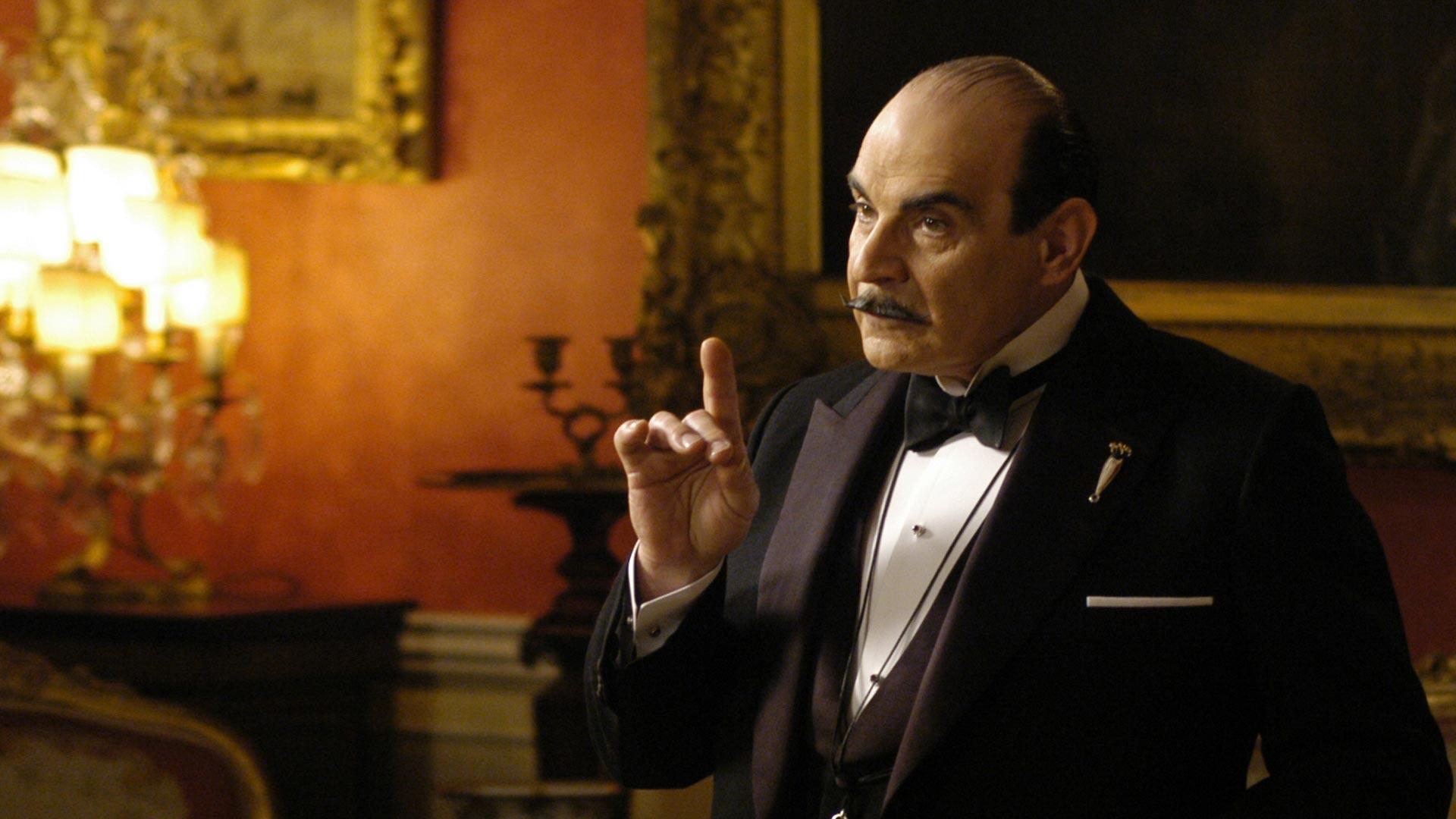 Image courtesy of PBS
Image courtesy of PBSPoirot likes things in a very orderly manner (ie, books arranged on a shelf according to height and pictures placed at the perfect angle and position) and approves of symmetry everywhere (his residence Whitehaven Mansions is chosen because of its symmetry). He despises dust and unclean homes and favors the indoors (especially central heating in the winter). Poirot also values method - to him the greatest method or tool in solving crime is using the "gray cells" of the brain. He derides such methods as examing footprints, collecting cigarette ash, searching for clues with a magnifying glass, or taking fingerprints. He says any crime can be solved with simply placing the puzzle pieces correctly. He is an armchair detective - he has to simply "sit still in an armchair and think".
Of course, Poirot's mustache is as famous as his "little gray cells". He has pride is his luscious, waxed black mustache and is always meticulously dressed down to his patent leather shoes.
Poirot focuses on getting people to talk. In the early novels, he casts himself in the role of "Papa Poirot", a benign confessor, especially to young women. In later works, Christie made a point of having Poirot supply false or misleading information about himself or his background to assist him in obtaining information. In The Murder of Roger Ackroyd, Poirot speaks of a non-existent mentally disabled nephew to uncover information about homes for the mentally unfit. In Dumb Witness, Poirot invents an elderly invalid mother as a pretence to investigate local nurses. In The Big Four, Poirot pretends to have (and poses as) an identical twin brother named Achille: however, this brother was mentioned again in The Labours of Hercules. Poirot claimed to have a brother for a short time.
In The Mysterious Affair at Styles, Poirot operates as a fairly conventional, clue-based and logical detective; reflected in his vocabulary by two common phrases: his use of "the little grey cells" and "order and method". Hastings is irritated by the fact that Poirot sometimes conceals important details of his plans, as in The Big Four. In this novel, Hastings is kept in the dark throughout the climax. This aspect of Poirot is less evident in the later novels, partly because there is rarely a narrator to mislead.
Learn more about Hercule Poirot's Methods